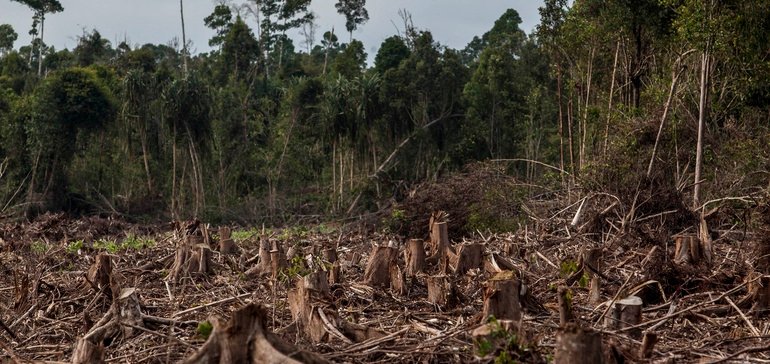Food companies must embrace transparency and accountability to end deforestation

Wai-Chan Chan is managing director of The Consumer Goods Forum, a CEO-led organization of retailers and CPG manufacturers that collaborate to drive positive change.
Forests are disappearing at a terrifying rate. Globally, we’re losing approximately 34,000 square miles of natural forest every year; that’s an area of forest the size of London every week, or around one soccer field every two seconds.
With this vast loss come huge consequences. Forests are crucial to providing food, air, water and maintaining life on Earth. Through storing carbon, they’re our ally in fighting the climate crisis. We know that the destruction of our forests must stop so it is no surprise that the upcoming United Nations COP26 Climate Change Conference has made the fight against deforestation one of its highest priorities.
Given this urgency and the scale of the challenge, what is required is a transformational collective effort, across business, government and local communities. Progress will be accelerated through the power of the collective, by combining our individual learnings with shared action-oriented approaches. But trust is essential for this approach to be effective. And for trust to take root across so many stakeholders in so many diverse sectors and communities, we need transparency and accountability.
The Consumer Goods Forum helps the world’s retailers and consumer goods manufacturers to collaborate, alongside other key stakeholders, to secure consumer trust and drive positive change. With its global reach, CEO leadership and focus on retailer-manufacturer collaboration, CGF is in a unique position to make change and help address key challenges impacting the industry, including environmental and social sustainability, health, food safety and product data accuracy.

Wai-Chan Chan
Courtesy of The Consumer Goods Forum
One year ago, CGF members launched the Forest Positive Coalition of Action, which brings together consumer goods companies with a collective market value of $1.8 trillion. The coalition is committed to working towards ending deforestation by driving full-sector transformation for four key commodities — palm oil; soy; pulp, paper and fiber-based packaging; and beef — through engaging with supply chain actors and supporting landscape-level interventions.
Importantly, we are collectively and individually investing in programs on the ground that are helping make the forest-positive vision a reality for everyone, especially forest-based communities and peoples. To this end, the Coalition is using its collective reach and knowledge, global networks and resources, to engage and collaborate with producers, suppliers and traders, as well as governments and civil society, to advocate for forest-positive solutions.
While collaboration is key to driving consumer goods giants to becoming forest-positive businesses, so too is transparency. Businesses need to be judged on the progress they are making while being honest about the challenges they face. This is why creating a culture of transparency and accountability has been a clear and immediate priority for the Coalition during its first year, including the development of robust key performance indicators to measure our performance against commitments. We are also sharing our plans with key stakeholders, providing them a platform to comment on our strategy and reports and to give constructive feedback. Based on this feedback, we adjust. It’s a critical piece that is further supported by our stakeholder engagement platform, Evergreen.
We recognize that the previous efforts of member organizations to tackle deforestation have lacked transparency, specificity and follow-through on meeting concrete goals, sharing actions publicly and holding each other accountable. We also know that we will not be successful in our goal of driving transformative change without being able to truly measure our progress.
In September 2021, we achieved a major transparency milestone with the publication of our first annual report that covers our members’ individual and collective progress, with links to their existing materials in which they report against our KPIs. These are early days, and we recognize that each coalition member has approached data collection and public reporting differently. Some have more mature reporting and disclosure processes than others, and we are working towards establishing a baseline understanding.
Food manufacturers and retailers across the industry must adopt an equally ambitious transparency mindset on a broad scale which will be critical to strengthening public trust in our efforts to tackle deforestation. So, the members of CGF’s Forest Positive Coalition have worked to align themselves with existing public reporting platforms in the development of KPIs — as well as engaging in dialogue to encourage harmonization across the industry.
Transparency is a catalyst for change. The ambition of this type of collective reporting is the level of partnership and transparency we hope to inspire across the broader industry as we invite others to join us in a shared vision of a forest-positive future. We encourage more companies to commit to transparency as we work towards ending commodity-driven deforestation.
Source: fooddive.com

